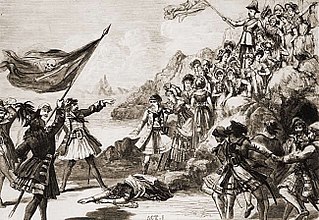
The Pirates of Penzance; or, The Slave of Duty is a comic opera in two acts, with music by Arthur Sullivan and libretto by W. S. Gilbert. Its official premiere was at the Fifth Avenue Theatre in New York City on 31 December 1879, where it was well received by both audiences and critics. Its London debut was on 3 April 1880, at the Opera Comique, where it ran for 363 performances.

Ivor Novello was a Welsh actor, dramatist, singer and composer who became one of the most popular British entertainers of the first half of the 20th century.

Mary Ellis was an American actress and singer appearing on stage, radio, television and film, best known for her musical theatre roles, particularly in Ivor Novello works. After appearing with the Metropolitan Opera beginning in 1918, she acted on Broadway, creating the title role in Rose-Marie. In 1930, she emigrated to England, where she gained additional fame and continued to perform into the 1990s. She also became known for film roles, including in The 3 Worlds of Gulliver in 1960.

Lionel John Alexander Monckton was an English composer of musical theatre. He became Britain's most popular composer of Edwardian musical comedy in the early years of the 20th century.
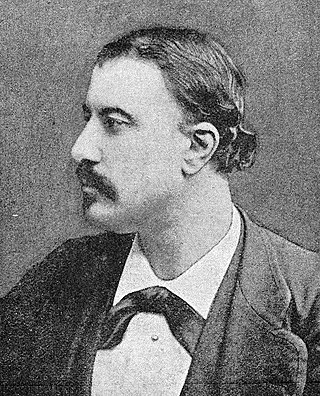
Frederic Emes Clay was an English composer known principally for songs and his music written for the stage. Although from a musical family, for 16 years Clay made his living as a civil servant in HM Treasury, composing in his spare time, until a legacy in 1873 enabled him to become a full-time composer. He had his first big stage success with Ages Ago (1869), a short comic opera with a libretto by W. S. Gilbert, for the small Gallery of Illustration; it ran well and was repeatedly revived. Clay, a great friend of his fellow composer Arthur Sullivan, introduced the latter to Gilbert, leading to the Gilbert and Sullivan partnership.

Chu Chin Chow is a musical comedy written, produced and directed by Oscar Asche, with music by Frederic Norton, based on the story of Ali Baba and the 40 Thieves. The piece premièred at His Majesty's Theatre in London on 3 August 1916 and ran for five years and a total of 2,238 performances, a record that stood for nearly forty years until Salad Days. The show's first American production in New York, with additional lyrics by Arthur Anderson, played for 208 performances in 1917–1918, starring Tyrone Power. It subsequently had successful seasons elsewhere in America and Australia, including in 1919, 1920, 1921 and 1922.

Elsie Cotton, known professionally as Lily Elsie, was an English actress and singer during the Edwardian era. She was best known for her starring role in the London premiere of Franz Lehár's operetta The Merry Widow.
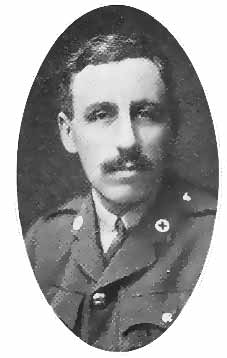
Harold Fraser-Simson was an English composer of light music, including songs and the scores to musical comedies. His most famous musical was the World War I hit The Maid of the Mountains, and he later set numerous children's poems to music, especially those of A. A. Milne.

Martin Edward Fallas Shaw was an English composer, conductor, and theatre producer. His over 300 published works include songs, hymns, carols, oratorios, several instrumental works, a congregational mass setting, and four operas including a ballad opera.
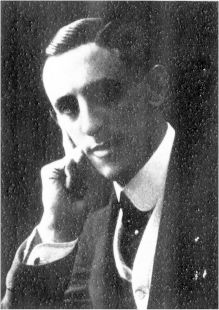
Paul Alfred Rubens was an English songwriter and librettist who wrote some of the most popular Edwardian musical comedies of the early twentieth century. He contributed to the success of dozens of musicals.
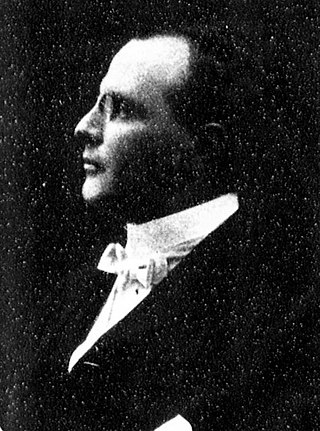
Howard Munkittrick, better known as Howard Talbot, was an American-born, English-raised conductor and composer of Irish descent. He was best known for writing the music to several hit Edwardian musical comedies, including A Chinese Honeymoon, The Arcadians and The Boy, as well as a number of other successful British musicals during the first two decades of the 20th century.

George Grossmith Jr. was an English actor, theatre producer and manager, director, playwright and songwriter, best remembered for his work in and with Edwardian musical comedies. Grossmith was also an important innovator in bringing "cabaret" and "revues" to the London stage. Born in London, he took his first role on the musical stage at the age of 18 in Haste to the Wedding (1892), a West End collaboration between his famous songwriter and actor father and W. S. Gilbert.

Ages Ago, sometimes stylised as Ages Ago! or Ages Ago!!, is a musical entertainment with a libretto by W. S. Gilbert and music by Frederic Clay that premiered on 22 November 1869 at the Royal Gallery of Illustration. It marked the beginning of a seven-year collaboration between Gilbert and Clay. The piece was a critical and popular success and was revived many times, including at St. George's Hall, London in 1870 and 1874, and in New York in 1880.
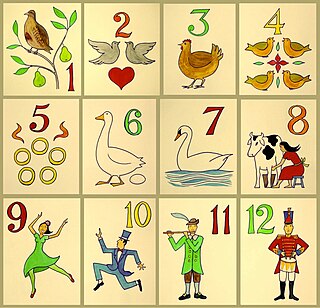
"The Twelve Days of Christmas" is an English Christmas carol. A classic example of a cumulative song, the lyrics detail a series of increasingly numerous gifts given to the speaker by their "true love" on each of the twelve days of Christmas. The carol, whose words were first published in England in the late eighteenth century, has a Roud Folk Song Index number of 68. A large number of different melodies have been associated with the song, of which the best known is derived from a 1909 arrangement of a traditional folk melody by English composer Frederic Austin.

Frederic William Austin was an English baritone singer, a musical teacher and composer in the period 1905–30. He is perhaps best remembered for his arrangement of Johann Pepusch's music for a 1920 production of The Beggar's Opera by John Gay, and its sequel Polly in 1922; and for his popularization of the melody of the carol The Twelve Days of Christmas. Austin was the older brother of the composer Ernest Austin (1874–1947).
Derby Day is a 1932 three-act light opera, with music composed by Alfred Reynolds to a libretto by A. P. Herbert. Herbert wrote his text between March and May 1931, whilst on a trip to Australia, during the first run of his successful Tantivy Towers.

Trial by Jury is a comic opera in one act, with music by Arthur Sullivan and libretto by W. S. Gilbert. It was first produced on 25 March 1875, at London's Royalty Theatre, where it initially ran for 131 performances and was considered a hit, receiving critical praise and outrunning its popular companion piece, Jacques Offenbach's La Périchole. The story concerns a "breach of promise of marriage" lawsuit in which the judge and legal system are the objects of lighthearted satire. Gilbert based the libretto of Trial by Jury on an operetta parody that he had written in 1868.

Roy Royston MC was an English actor who appeared in a large number of films between 1912 and 1966, beginning as a child actor. Most of his films were silents made before the First World War, during the last year of which he served as a pilot in the Royal Flying Corps and was awarded the Military Cross.

Harry Archer was an American composer and orchestra leader. He is best remembered for six Broadway shows from the 2nd and 3rd decades of the 20th-century, but also made several popular recordings in the 1920s for Brunswick Records.
This is a summary of 1924 in music in the United Kingdom.